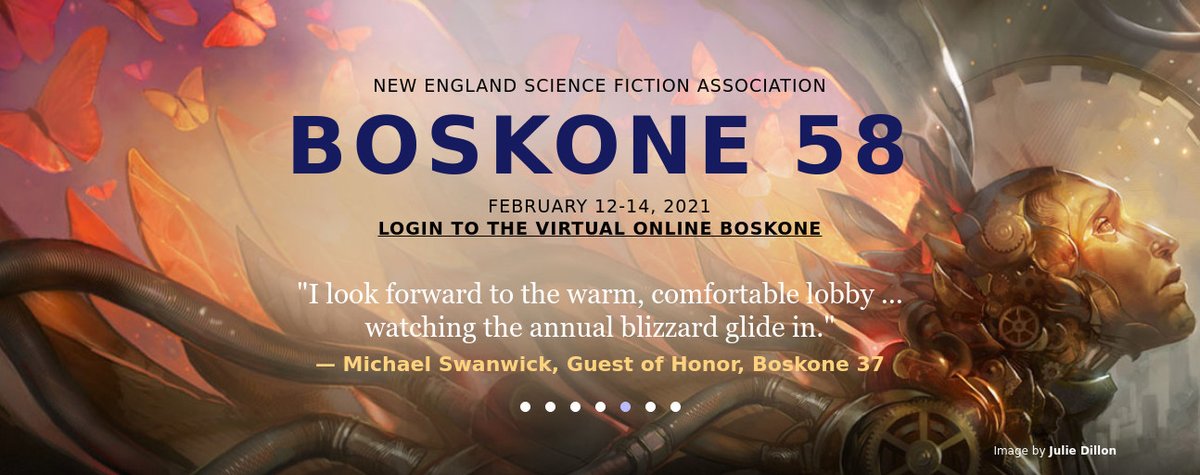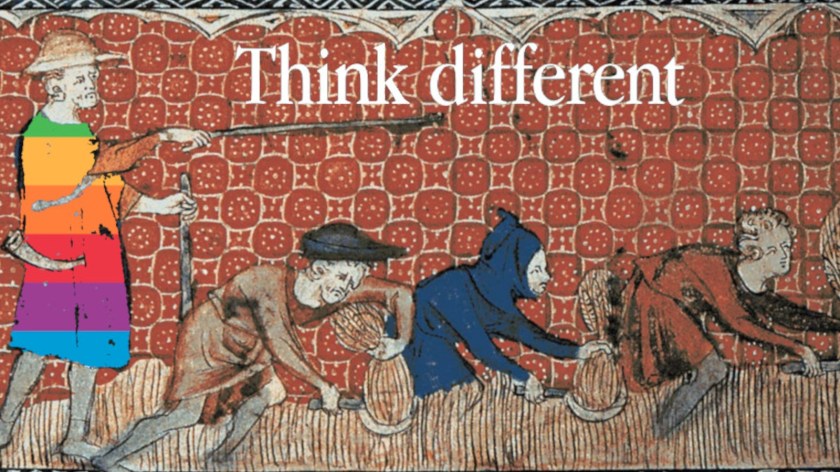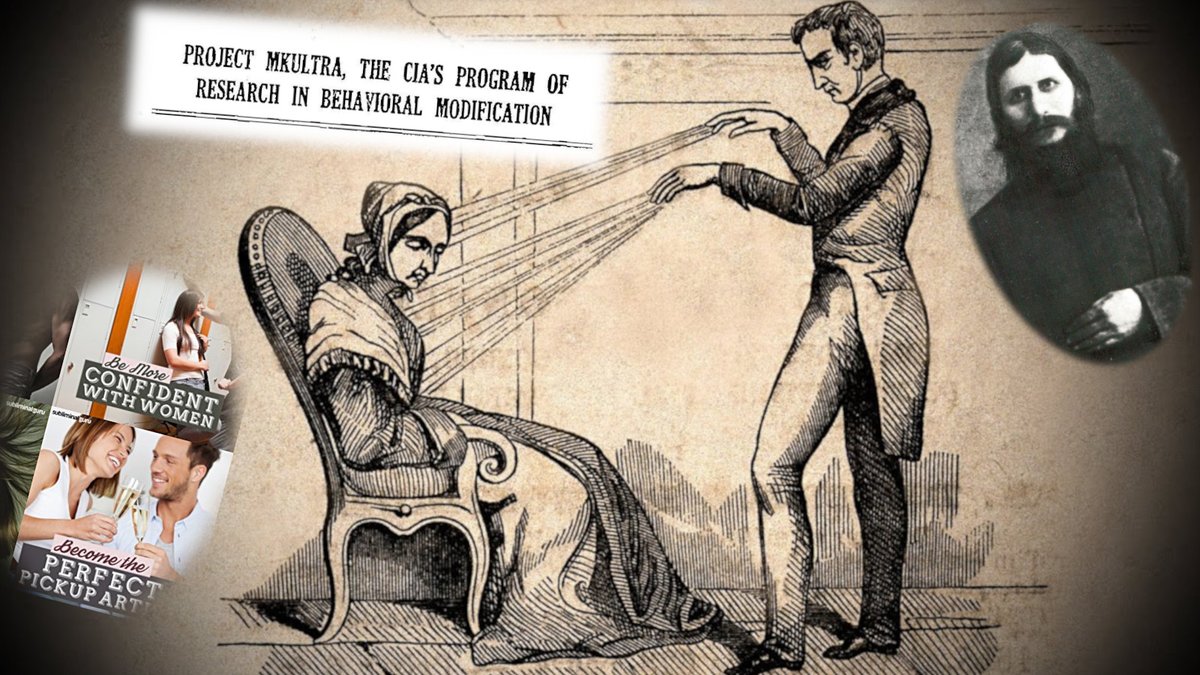
Two of the most astute IP scholars I know also happen to be two of the best legal writers I know, and also happen to work at one of the worst IP abusers in the country: Jennifer Jenkins and @publicdomain, of @DukeU, the nation's leading academic trademark abuser.
1/
1/
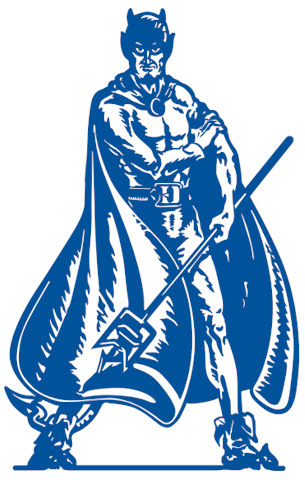
Duke has a universal reputation for being a serious trademark abuser, but Jenkins and Boyle wanted to empirically investigate that reputation. The result is "Mark of the Devil: The University as Brand Bully," forthcoming in Fordham IPLJ.
papers.ssrn.com/sol3/papers.cf…
2/
papers.ssrn.com/sol3/papers.cf…
2/
To do empirical work, you have to find stuff to count. The problem is that questions like "who is the biggest bully?" are stubbornly qualitative, and quantizing Duke's conduct risks incinerating the most important elements in the quest for some kind of quantitative residue.
3/
3/
But the authors hit on a very good quantitative/qualitative methodology: they would count trademark oppositions, which are legal filings sent after a trademark has received preliminary approval. That way, they'd be counting oppositions to trademarks that had some merit.
4/
4/
Even better: trademark oppositions have to be accompanied by legal arguments explaining why the university thinks the trademark should be blocked, and that produces a qualitative account of how Duke thinks about its trademark.
5/
5/
Then Jenkins and Boyle used their considerable legal knowledge to characterize each opposition's argument on the basis of how plausible or stupid it was, quantizing the qualitative question of whether Duke's lawyers were fucking around.
6/
6/
Some background: universities have reinvented themselves as brand-factories and oriented their activities around slapping their logos on random shit and selling it. That's why Ohio State applied for a trademark on, I shit you not, the word "the."
7/
7/
Boise State asked for a trademark on all non-green football fields. U Texas wants the trademark over making devil horns with your fingers ("I felt a great disturbance in the Force, as if millions of metalheads suddenly cried out in terror and were suddenly silenced").
8/
8/
The trademark and licensing business is a squalid affair. The (grossly overstated, rarely realized) risk of a mark lapsing into the public domain ("genericide") justifies endless bullying of people who say and do normal things that glance off your trademarks.
9/
9/
Trademark was established to protect buyers, by allowing the makers of well-known goods to punish rivals who sought to deceive their customers. Over the years, trademark has been distorted into just another grift, a way to make the rich, richer.
10/
10/
As the authors point out, citing @marklemley et al, there's no good trademark justification for allowing a university to snuff out "counterfeit" tees - the buyers of these items haven't been tricked into getting a bargain on a way to advertise their team allegiance.
11/
11/
But the expansion of trademark into an economic right for mark-makers (and away from a way of protecting the public from deceptive sellers), combined with the bogeyman of genericide add up to a perfect business for the greedy and unscrupulous. For bullies.
12/
12/
So, is Duke a bully?
Oh shit yes.
Let's look at some graphs. Here's how Duke stacks up against comparable US institutions in terms of how often it challenges a trademark.
They slice this data many ways but it always looks like this: Duke is a huge outlier.
13/
Oh shit yes.
Let's look at some graphs. Here's how Duke stacks up against comparable US institutions in terms of how often it challenges a trademark.
They slice this data many ways but it always looks like this: Duke is a huge outlier.
13/
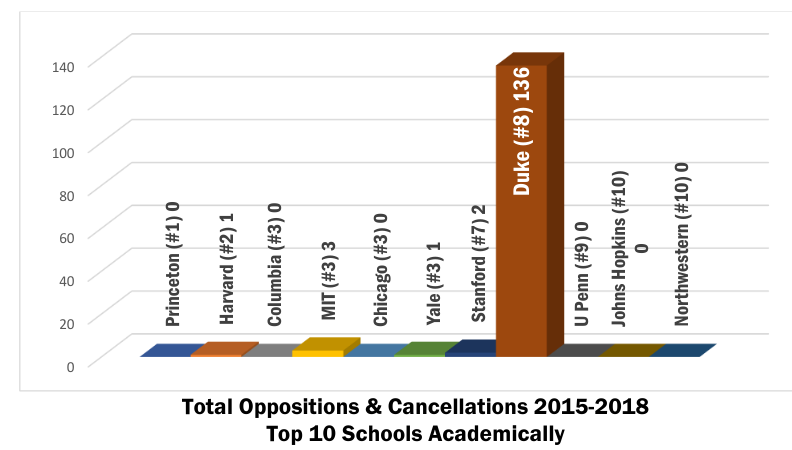
But wait! Maybe those trademark cancellations are good, actually. So let's go to the quantized, hand-coded qualitative assessments of Duke's arguments.
They're garbage.
"85% of Duke’s oppositions were coded either clearly erroneous or far-fetched"
14/
They're garbage.
"85% of Duke’s oppositions were coded either clearly erroneous or far-fetched"
14/
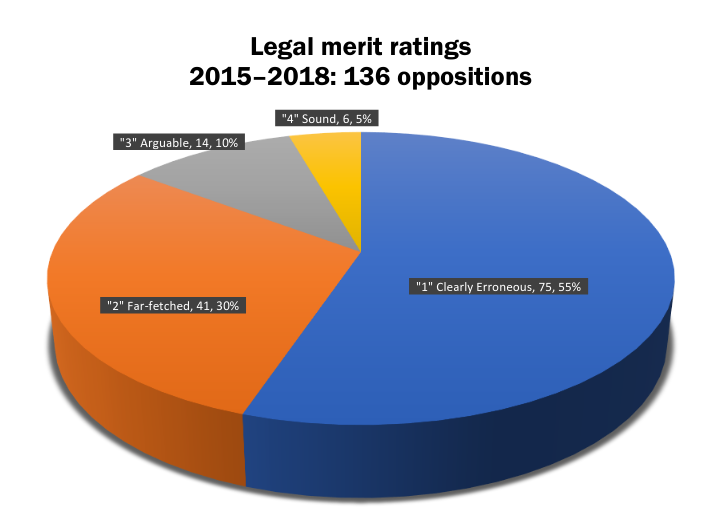
But wait! Maybe the authors are being mean to Duke. What's "erroneous or far-fetched?" Well, it seems that Duke challenges any trademark application containing "Duke," the letter "D," a devil, the world blue, or any word that sounds like "duke."
15/
15/
All of this is laid out with beautiful clarity in the paper, and the back third of the paper moves on to ask What It All Means - why is Duke such a godawful bully. The authors entertain several possibilities, like perverse incentives in trademark, etc.
16/
16/
But they don't draw conclusions. I have one, and it may be uncomfortable for my honorable and good lawyer friends, which is that law has a bullying problem. There are many fields where esoteric knowledge gives you the power to coerce others, but the law is especially bad.
17/
17/
Luckily, most of my experience of lawyers has been with people who fight for the underdog, but honestly, I think they're the exception. I had a very eye-opening experience about 15 years ago, when a friend asked me to come speak to some co-workers.
18/
18/
My friend worked at a giant company in a creative unit, and he asked me if I'd come speak to his group. It was close by home and I told him of course I'd do it. A day before I was meant to come by, he emailed apologetically to say that legal had sent him a contract for me.
19/
19/
Now, I wasn't charging this massive, profitable company a dime. It was a favor for a pal. But I looked at the contract and it was bonkers - like, I promised I'd never mention the name of the company in print, ever, without written permission.
20/
20/
I told my friend I couldn't sign that clause and he told me he understood, but the legal department wouldn't let me in the building unless I signed it. I canceled the talk. A couple months later, I met a lawyer from the company at a signing and I told him this story.
21/
21/
He grimaced and said he knew whose doing that was, another lawyer in the department who counted their successes by how badly they could humiliate the people who contracted with the company. He listed several of these, each more outrageous than the last.
22/
22/
This wasn't just a power-trip, it was sadism. And it's not limited to that lawyer or that company. I sent back two minor, small-dollar publishing contracts today that had abominable language in them - blanket indemnities, binding arbitration, huge rights grabs.
23/
23/
These aren't (or weren't) standard. There's no business reason for them. I mean, I CAN'T indemnify a multinational corporation against all claims for the simple reason that I couldn't afford to hire lawyers to argue their case. I'd just go bust.
24/
24/
There is a toxic strain of competitive sadism in the law, an ethic of victory through someone else's humiliating defeat. If I had to guess why Duke smashes all those trademark applicants' dreams, I'd say that sadism is playing a major role.
eof/
eof/
• • •
Missing some Tweet in this thread? You can try to
force a refresh


